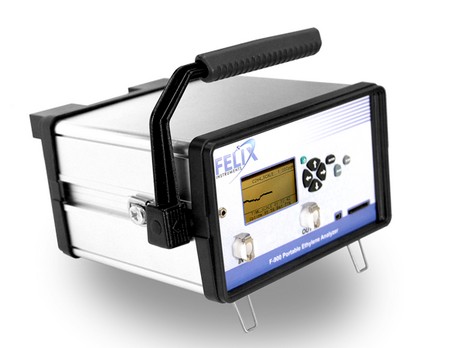Felix Instruments is a newly formed subsidiary of CID Bio-Science, Inc.. CID Bio-Science has been providing research scientists with plant science tools for more than 23 years. But six years ago, Leonard Felix acquired the company and saw there was a bigger market they could serve. He used his company’s experience in gas analysis and hyper-spectral imaging and directed it towards the commercial market.

“The company was very good at building gas analysis tools, and we were working on ethylene detection for plant research,” explained Felix. “That opened our eyes to a way we could segue into food commerce, so we put together a new company to build a new distribution channel for products for the commercial market.” Their first offering, the F-900 Ethylene Gas Analyzer, detects and measures the amount of ethylene present in the air. While those in the produce industry are well aware that ethylene management can prolong fruit shelf life, Felix noted that there aren't many products on the market that can measure the levels of ethylene present during shipment or storage.
“We've reached a point where everyone knows what ethylene is and they know they should manage it, but they don't have the tools to do it.” Felix pointed out. “Remediation technologies have hit the market far ahead of measurement technologies in the form of absorbers and scrubbers and the like”. The F-900 is portable, so it can be used to easily detect the ethylene levels in various locations throughout a facility to determine conditions prior to implementing remediation, or be used as a fixed sensor that feeds information to a controlled atmosphere system.
The analyzer can currently detect and measure ethylene down to less than 20 ppbv, but newer iterations of the analyzer will have up to three sensors that can also measure carbon dioxide and oxygen levels.
So far, Felix said the F-900 has been well received, with particular interest coming from Europe, Japan, and the United States, and while the hope is that logistics companies will one day see their analyzer as an indispensable piece of equipment on their shipping containers, he's focusing on first spreading the word via post-harvest consultants.
“We'd like to put our analyzers in the hands of well-connected, knowledgeable, post-harvest storage consultants,” said Felix. “Once those consultants start using it to advise their clients, those clients will then want to acquire that tool for themselves.”





